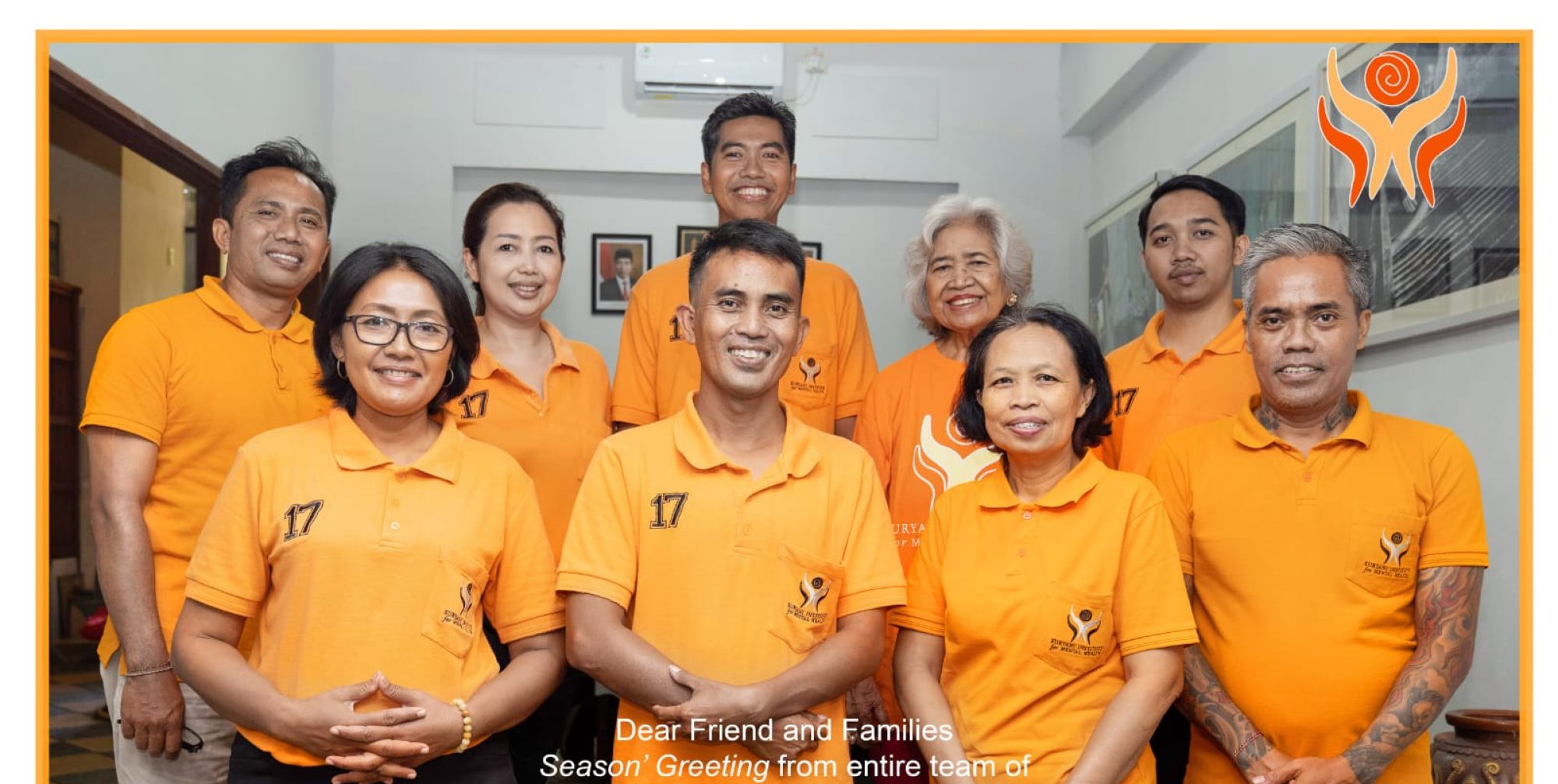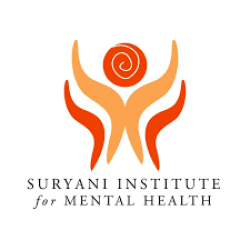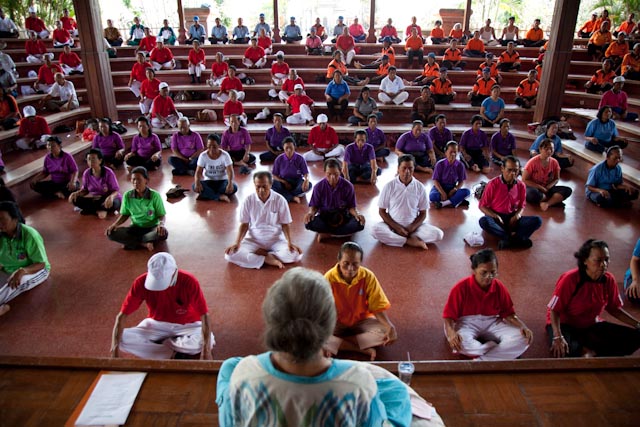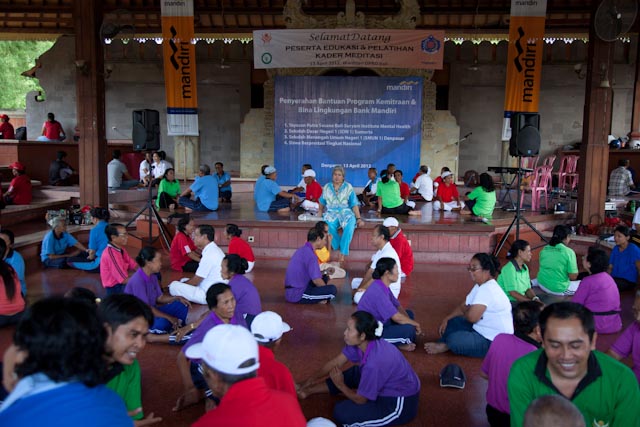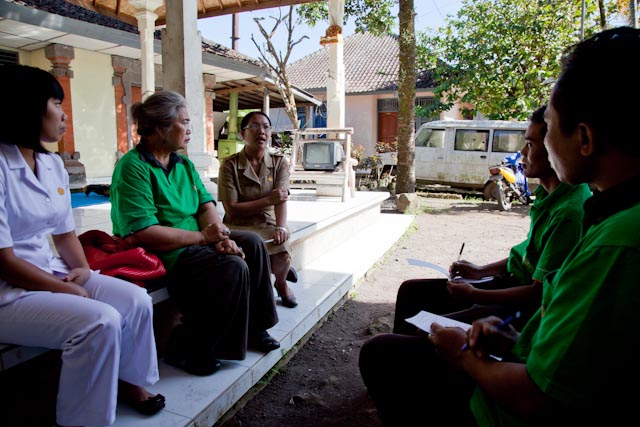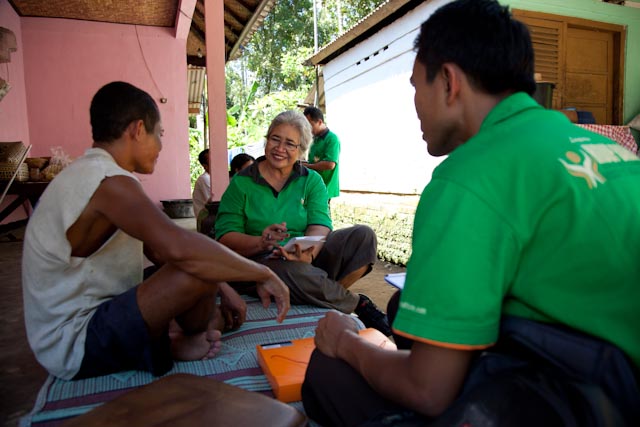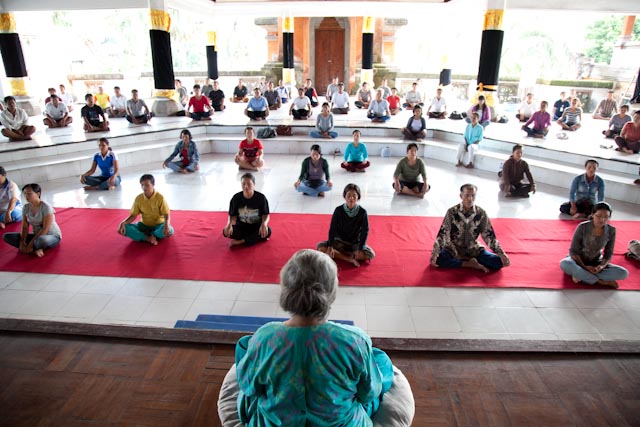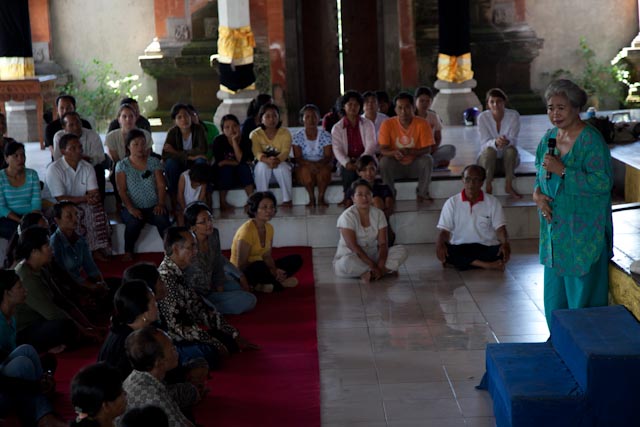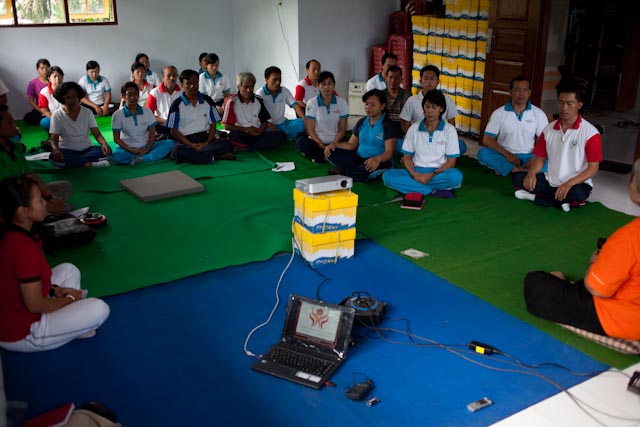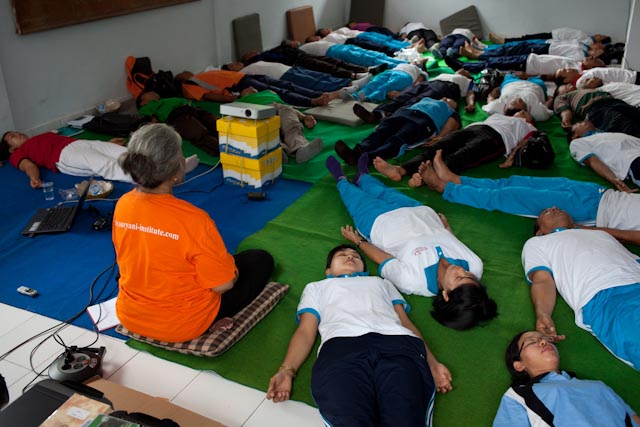Many visitors to Bali have found the way of life there remarkably cohesive. A network of close social relationships, binding individuals to their extended family and the families to each other, have meant there has been very little of the crime, prostitution, gratuitous violence, drug abuse, or crippling poverty that plague even the most affluent societies in modern times. Now, the society faces rapid modernization, with considerable dislocation of individuals and families from the land to the cities. Immigration from other Indonesian islands brings in people with alien traditions and religions, undermining the cohesiveness of the Balinese culture and society.
“I believe that the strength and vitality of a healthy society depend, not on the surface behaviours of people, but on the depth of connection that they have to themselves. From there, the customs and traditions appropriate to a people and a place evolve”. said Professor Luh Ketut Suryani as she opened the training for 280s people who willing to devote themselves for humanity and harmony at Wantilan DPRD Bali, Renon.
“There are many people from outside trying to sell their meditation method in Bali by fooling our people that Balinese has no meditation technique, and that’s wrong”, add Professor Suryani trying to make the Balinese grounded with their own culture. Meditation is not a business but something that people should spread for humanity and peace. “How can you feel peace when you start counting how much money that you can earn from tricking other people?’, said Professor Suryani in the end of the program as she believed that her movement will help to maintain the balance and harmony in the island of Bali.
